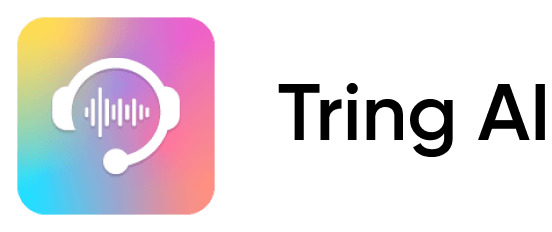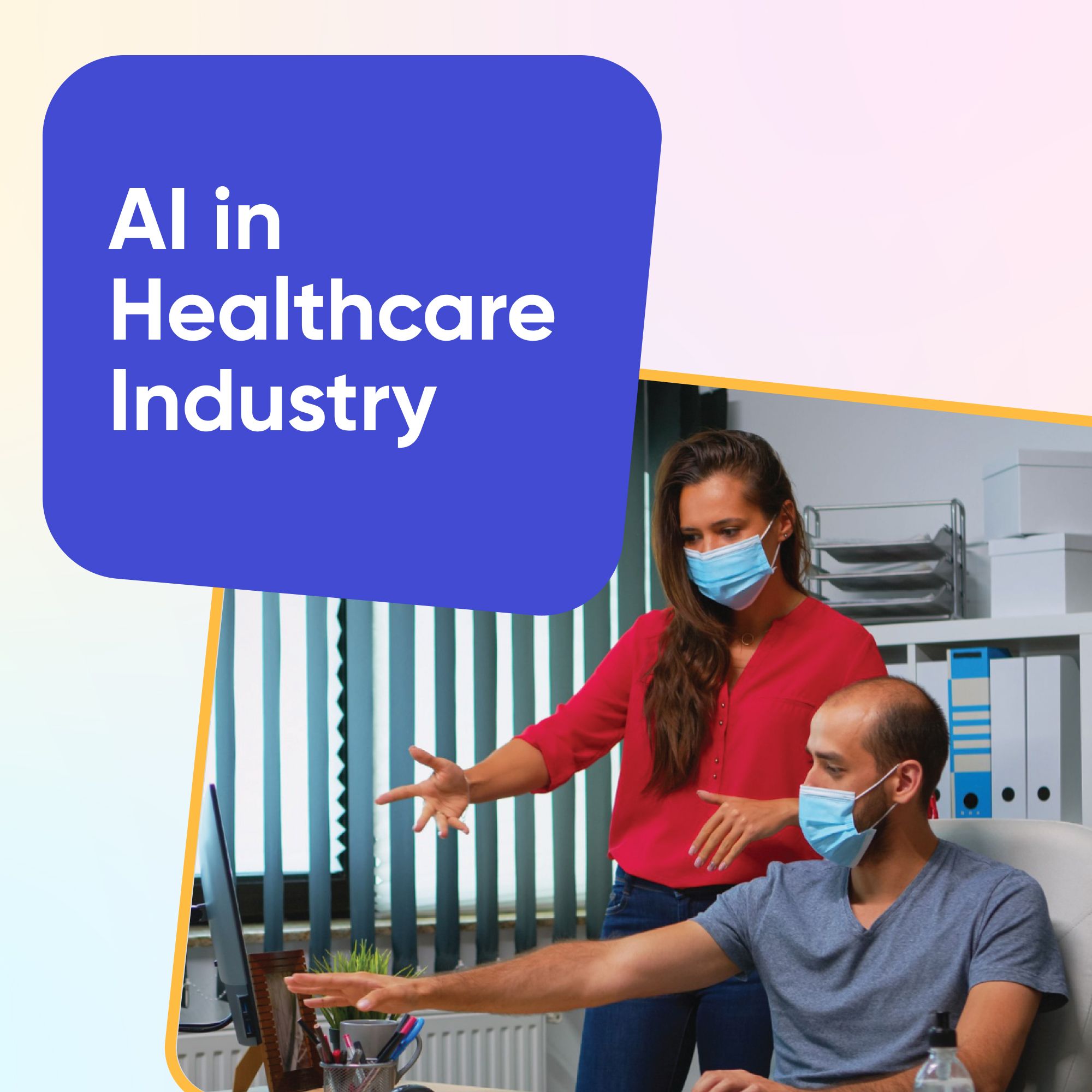In recent years, Artificial Intelligence (AI) has taken center stage in driving global advancements. What people often miss is that AI shows up in numerous ways that influence our day-to-day lives. As technology advances, healthcare and AI become increasingly interconnected. AI in healthcare enhances how providers approach patient care, manage chronic diseases, identify risks early, and optimize workflows, leading to more efficient operations. Capitalizing on technology in healthcare elevates your facility’s capabilities and transforms patient experiences. Get ready to explore artificial intelligence with us in this article as we investigate the current role of AI in healthcare and how it’s set to transform the industry ahead. Let's get started!
Related Read: Curious about how AI is transforming the healthcare industry? Check it out here!
Exploring the Potential for Artificial Intelligence in Healthcare
AI technology in healthcare is reshaping the industry by boosting diagnostic precision, elevating patient care quality, and automating routine administrative processes. It empowers healthcare professionals to efficiently analyze vast datasets, revealing critical patterns and insights that can significantly refine treatment strategies, ultimately leading to more personalized and effective patient care outcomes. Moreover, advanced AI in the healthcare industry is driving the evolution of personalized medicine, allowing for treatment plans that are specifically tailored to each patient’s unique medical profile. By optimizing workflows and minimizing errors, artificial intelligence in healthcare is emerging as an essential tool in revolutionizing both patient outcomes and the overall efficiency of healthcare systems.
How is AI Used in Healthcare? Top 10 AI Applications in Healthcare
Artificial Intelligence (AI) is transforming the healthcare landscape, showcasing numerous uses of AI in healthcare. From diagnostics to patient management, here are the 10 common applications of artificial intelligence in healthcare that are making a significant impact:
1. Conversational AI Solutions
Among the various applications of AI in healthcare, AI-powered chatbots and voice bots play an integral role. These AI solutions in healthcare usually assist in patient assessment, answering routine medical queries, and simplifying patient communication.
Suggested Read: What is a Chatbot? Chatbot Meaning, Uses, and Future of Chatbots
2. Medical Imaging Techniques
One of the most prominent examples of AI in healthcare is in diagnostic imaging. AI algorithms analyze medical images, such as X-rays and MRIs, enhancing the accuracy and speed of detecting conditions like tumors.
3. Tailored Treatment Approaches
The use of AI in healthcare enables personalized medicine by tailoring treatment plans to each patient's unique genetic profile, ensuring that therapies are more effective and aligned with individual health needs.
4. Predictive Insights Generation
The AI applications in healthcare also include predictive analytics, which forecasts disease outbreaks and patient admissions. This enables healthcare providers to allocate resources effectively and improve patient outcomes.
5. Remote Health Assessments
Remote patient monitoring is one of the most impactful examples of artificial intelligence in healthcare, enabling systems to track patients’ health metrics in real-time and facilitate timely interventions when needed.
6. Task Management Efficiency
Using AI in healthcare has revolutionized workflow optimization by automating administrative tasks such as scheduling and billing. This not only reduces the burden on healthcare professionals but also enhances overall efficiency in healthcare settings, allowing providers to focus more on patient care.
7. Intelligent Decision Support
Clinical decision support systems exemplify how AI used in healthcare can assist medical professionals by offering evidence-based recommendations. This technology not only enhances patient safety but also contributes to improved health outcomes.
8. Scam Detection and Prevention
A prominent AI use in healthcare involves analyzing billing patterns to pinpoint fraudulent activities in claims. By detecting anomalies and suspicious behaviors, these AI systems are essential for preventing fraud, helping to keep healthcare costs in check and resources well-managed.
9. Supply Chain Management
Among the various AI in healthcare examples, supply chain optimization stands out. By effectively predicting demand and managing inventory, AI systems enhance resource allocation, minimize waste, and ensure healthcare providers have the supplies necessary for effective patient care.
10. Patient Awareness Programs
AI-driven platforms offer personalized patient education materials based on individual conditions and treatment plans. This enhances patient understanding and engagement, empowering individuals to participate actively in their healthcare decisions and improving overall treatment adherence.
9 Transformative Benefits of Artificial Intelligence (AI) in Healthcare
1. Improved Patient Outcomes
The advantages of AI in healthcare include enhanced diagnostic accuracy and personalized treatment plans. With the aid of predictive analytics, healthcare providers can intervene promptly, preventing issues from worsening and ensuring better overall patient outcomes.
2. Enhanced Staff Productivity
With the positive impact of AI in healthcare, the automation of administrative responsibilities reduces the strain on healthcare professionals. This shift not only enhances their ability to focus on patient care but also leads to improved efficiency and productivity across the healthcare sector.
3. Unlocking Cost Savings
In the context of the role of AI in healthcare, significant cost reductions can be achieved. AI helps optimize resource allocation, reduce hospital readmissions, and expedite medicine development. The savings generated can then be reinvested to improve patient care and expand healthcare services.
4. Increased Access to Care
With the advancement of artificial intelligence in health care, telehealth solutions are becoming more prevalent, particularly in rural and limited-access areas. Patients can now enjoy timely consultations and follow-ups from the comfort of their homes, greatly enhancing access to essential healthcare services.
5. Data-Driven Decision Making
The seamless integration of AI for healthcare transforms how professionals make decisions. By leveraging comprehensive data analysis, clinicians can enhance their judgment and improve treatment strategies and patient management through evidence-based practices.
6. Early Detection of Diseases
AI in healthcare sector is transforming the way diseases are detected, allowing for early identification of conditions like cancer and cardiovascular diseases. By analyzing subtle patterns in data, AI tools provide healthcare professionals with critical insights that can lead to timely interventions.
7. Improved Patient Engagement
The incorporation of artificial intelligence in healthcare in India is fostering better patient engagement. Through AI-driven applications, healthcare providers can offer tailored health information and reminders, resulting in increased patient involvement in their treatment processes and adherence to prescribed plans.
8. Advanced Research Capabilities
Artificial intelligence in health care facilitates unprecedented research opportunities by sifting through vast datasets. This analytical power helps researchers uncover crucial trends, driving groundbreaking discoveries that can enhance medical science and innovate treatment modalities for patients worldwide.
9. Accelerates Innovation in Medication
The development of new medicines is a complex and costly endeavor. However, the integration of AI in healthcare can streamline this process by examining data from existing medications. By utilizing AI, healthcare companies can reduce expenses and expedite the discovery of new, promising therapies, marking a significant shift in medicine development practices.
The Future Scope of Artificial Intelligence (AI) in Healthcare
The future of AI in healthcare is set to transform patient care and operational efficiency. As we delve into its prospective scope, it becomes evident that this technology will enhance diagnostics, facilitating early and accurate disease detection. Advanced algorithms can analyze extensive patient data, uncovering patterns often overlooked by practitioners. Moreover, the future of artificial intelligence in healthcare offers personalized treatment plans that consider genetic, environmental, and lifestyle factors. Ultimately, the role of AI in healthcare aims to eliminate human mistakes, support tireless medical professionals, and enhance the effectiveness of care provision. Additionally, AI can automate administrative tasks, alleviating the burden on healthcare staff and enabling a greater focus on patient interactions.
Experience the future of healthcare support with Tring AI! Check out our diverse pricing options for AI Chatbot and Voice Bot solutions!
Simplify Your Healthcare Operations with Smart AI Solutions Today!
At Tring AI, we provide advanced chat and voice bot solutions tailored for the healthcare industry. Our AI-driven tools enhance patient engagement and streamline operations, ensuring that healthcare providers can focus on what matters most—patient care:
1. 24/7 Patient Support
Our chatbots provide instant support, answering inquiries and offering assistance at any time, significantly enhancing patient experience and satisfaction.
2. Medication Reminders
Automated reminders help patients adhere to medication schedules, reducing missed doses and improving overall health outcomes.
3. Data Collection & Insights
Our bots gather and analyze patient data, helping providers optimize services and make informed decisions tailored to patient needs.
4. Patient Feedback Collection
Chatbots streamline patient feedback collection, enabling healthcare providers to gain insights for service improvements and increased satisfaction.
5. Efficient Appointment Scheduling
Chatbots facilitate efficient appointment scheduling by managing bookings, cancellations, and confirmations, reducing administrative workload for healthcare staff.
Conclusion
Artificial intelligence (AI) is making waves and rapidly reshaping multiple sectors, specifically healthcare. It is no longer a vision but a reality. AI in healthcare is transforming the entire landscape, and by leveraging advanced AI solutions, providers can streamline processes, improve patient experiences, and make data-driven decisions that lead to better health outcomes. At Tring AI, we recognize that AI chatbots and voice bots are revolutionizing the healthcare industry. The uses of AI in healthcare transform operations, leading to greater efficiency and improved patient engagement. Embrace Tring AI chatbots and voice bots to elevate your standards above competitors, drive innovative solutions, and offer unparalleled value to your patients. Are you ready to unlock the potential of AI in your healthcare organization? If so, reach out to us today or schedule a demo for a comprehensive consultation with industry experts. Check out our blog section for insightful posts on AI, chatbots, and voice bot trends!
FAQs on AI in Healthcare Industry
1. What is Artificial Intelligence in Healthcare?
Artificial Intelligence in healthcare refers to the use of advanced algorithms and machine learning techniques to analyze complex medical data. The uses of AI in healthcare are more as it enhances diagnostics, personalizes treatment plans, predicts patient outcomes, and streamlines administrative processes.
2. How AI Helps in Healthcare Industry?
AI solutions in healthcare transform the industry by allowing accurate diagnostics, optimizing treatment plans, and improving patient care. It processes large datasets to identify health trends and predict disease outbreaks. AI-driven tools improve operational efficiency, reduce administrative burdens, and facilitate telemedicine.
3. What Problem Does AI in Healthcare Solve?
The role of AI in healthcare is vital as it solves key problems by enhancing diagnostic accuracy and streamlining administrative processes. Moreover, artificial intelligence in health care optimizes resource allocation, improving healthcare delivery and efficiency, ultimately leading to better patient outcomes and reduced costs.
4. Where Can I Get the Best AI Solutions for the Healthcare Industry?
For cutting-edge AI solutions in the healthcare industry, look no further than Tring AI. Our advanced AI chatbot and voice bot technologies revolutionize patient interactions by providing 24/7 support, answering queries, and scheduling appointments seamlessly. Enhance patient engagement and satisfaction through personalized healthcare experiences, ensuring timely follow-ups and tailored recommendations. With Tring AI, streamline your operations, reduce administrative burdens, and create a 100% patient-centric approach that prioritizes care delivery and improves overall health outcomes.







